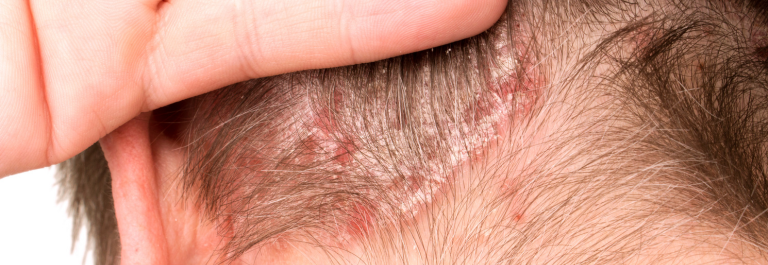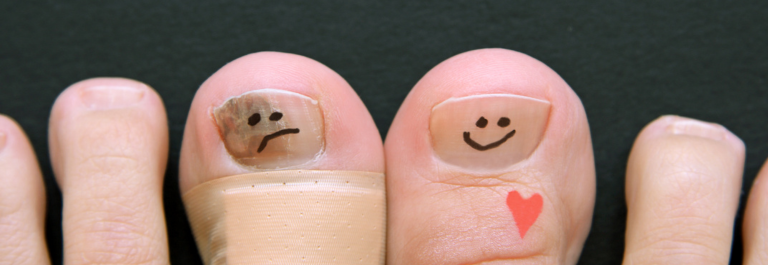For most people, exercise is a great way to stay healthy, get more energy, and reduce stress. But for those with eczema—a condition characterized by itchy, sensitive, and inflamed skin—the thought of getting sweaty might bring more anxiety than excitement. This is because every trip to the gym or home workout session brings the risk of sweat, heat, and friction that can irritate already sensitive skin and worsen eczema symptoms.
In this blog, we’ll explore the connection between exercise and eczema, focusing on:
-
How exercise affects eczema symptoms
-
Tips to exercise with eczema to avoid flare-ups and keep the skin barrier intact
-
Choose the right exercise and environment for sensitive skin
Read on to learn how to exercise safely and keep your skin healthy while managing eczema.
The Benefits of Exercise for Eczema
Physical activity has many health benefits, including reducing stress—a known trigger for eczema flares. Exercise can also help improve mental health and boost the immune system, both of which are essential for overall well-being and managing chronic skin conditions like eczema.
But finding the balance is key, as some forms of exercise can raise body temperature, exacerbate eczema symptoms, and cause itchiness or flare-ups. That’s why knowing how to exercise with eczema is crucial to keeping your physical health in check without making eczema worse.
The Challenges of Exercising with Eczema
For people with eczema, exercise presents specific challenges:
Sweat and Body Temperature
When you exercise, your body temperature rises, and you sweat. When left on the skin, sweat can leave behind a salty residue that irritates sensitive skin and can worsen eczema flares. To avoid this, it’s essential to allow sweat to evaporate and gently blot it away without rubbing as this can damage the skin barrier and lead to an eczema flare-up.
Clothing Choices
Synthetic fabrics, and certain types of athletic wear can trap sweat, creating a warm and moist environment where skin irritation thrives. Cotton clothing and breathable fabrics like TENCEL can help prevent symptoms by cooling the skin and reducing the risk of eczema flare-ups.
Environmental Triggers
Exercising outdoors can expose skin to environmental triggers like pollen or pollution, which may aggravate eczema. Similarly, chlorinated pools, hot showers, and dry air can irritate the skin, potentially leading to eczema flare-ups.
Tips for Exercising with Eczema
With the right precautions, people with eczema can safely enjoy the health benefits of exercise. Here are some tips to help manage eczema symptoms and prevent flare-ups:
Choose Low-Impact Exercises
Tai chi, yoga, and gentle strength training are all low-impact exercises that are less likely to cause intense sweating or raise body temperature. We recommend them if you want to reduce flare-ups while supporting your physical fitness and mental health.
Wear Breathable, Loose Clothing
Wearing the right clothing can also make a big difference. For those with eczema-prone skin, it’s best to avoid fabrics like nylon, spandex, or latex, as these can irritate sensitive skin. Instead, choose soft, breathable fabrics like cotton or TENCEL.
A great choice is the Remedywear™ Long Sleeve Shirt and matching Remedywear™ pants. These garments cover sensitive areas on the arms, chest, back, legs, and thighs, providing a form-fitting layer of protection. Made with TENCEL and anti-bacterial zinc, they offer natural moisture-wicking properties to help prevent sweaty irritation or chafing, keeping skin cool and comfortable.
Stay Hydrated and Take Breaks
Dry skin can trigger flare-ups, so staying hydrated is essential for people with eczema. We suggest drinking water before, during, and after exercise. Taking regular rest breaks also helps regulate body temperature and prevent excessive sweating, reducing the chance of an eczema flare-up.
Use Cold Compression Wraps or Cooling Towels
Applying cold compression wraps or cooling towels can help lower body temperature, reduce itchiness, and soothe irritated skin. Cooling towels are especially helpful during vigorous physical activity, providing immediate relief from rising body heat without needing a cold shower.
Cleanse Gently After Exercising
It’s essential to shower immediately after exercising. This allows you to wash off sweat and prevent the sodium from sticking to your skin, which can exacerbate eczema symptoms. Opt for a cool shower rather than hot water, as hot showers can dry out and irritate eczema-prone skin.
After your shower, apply a nourishing cream or moisturizer to lock in hydration and support your skin barrier. A great option is our Nourish + Hydrate Manuka Balm, which is rich in emollients and deeply moisturizing – even for the driest skin. Made with natural ingredients like manuka honey, beeswax, and nut-free oils, it’s a gentle choice for sensitive skin. This simple post-exercise care routine can help keep your skin hydrated and healthy, reducing the risk of flare-ups.
Best Exercise Environments for People with Eczema
Outdoor Exercise in Moderate Conditions
Exercising outdoors in cooler weather or shaded areas can help regulate body temperature. However, avoid direct sunlight, as UV exposure can irritate sensitive skin.
Well-Ventilated Gyms or Fitness Clubs
Gyms with good ventilation and air circulation help keep skin cool and comfortable. If you feel self-conscious about sweating or worry about triggering eczema in public spaces, choose quieter times at the gym.
Avoiding Chlorinated Pools
Chlorine can irritate eczema-prone skin, so it may be best to skip chlorinated pools if possible. If swimming is part of your fitness routine, look for alternatives like saltwater pools or low-chlorine options.
When to Avoid Exercise
In some cases, vigorous physical activity may exacerbate eczema symptoms, especially if you’re experiencing an active flare-up. When eczema symptoms are severe, it may be beneficial to rest and focus on treating eczema through natural treatments. Consulting with a dermatologist about the best strategies for managing eczema flares can help you decide when it’s safe to resume physical activity.
Final Thoughts on Eczema and Exercise
While exercise offers numerous health benefits, people with eczema need to take extra precautions to avoid irritating sensitive skin. Thankfully, with the right approach, you can keep your skin healthy, reduce flare-ups, and enjoy a balanced, active lifestyle.













